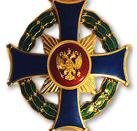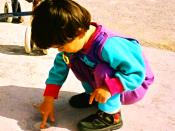Many of life's basic, fundamental knowledge are learned as a young child. This crucial information is taught to this young child by a guardian, usually a parent. This parental figure plays an important role in a young child's life. The absence of the parental figure can have a detrimental effect on the young child's life as he or she becomes an adult.
Parents shape their children's lives by modeling patterns of affect and behavior for them. Parents also make decisions about the values they adopt and use with their young. A parent's demonstrations of positive attitudes and their caring and affection contribute to a healthy style of living with children. The children learn ways to solve problems and learn cultural values from their parents. The parent serves as a role model for the young child. Modeling is a powerful form of learning for the young child. The child is often following the parent around, observing the parent's general attitudes and styles.
"The parent is the primary educator of the child in the years before school. As designer of the home environment, organizer of the child's experiences, the parent serves an essential child-development function" (Cataldo39). A child often repeats words and gestures from their parent. Sharing, taking turns, using good manners, and attending to rules are rules that a child learns from their parents. Parents develop positive patterns in children that help them to behave with kindness and consideration.
These basic skills a child learns are skills that are needed for the rest of their life. "In helping your child become a happy, whole person, your investment of time and attention in these years will never again be so profitable. Your dedication to understand your child and to teaching language, intellectual, and social skills are very important."(Durrell 9) A child that...


